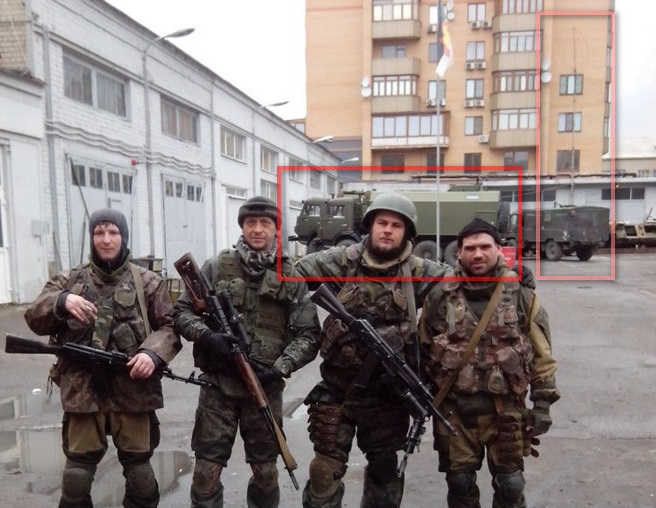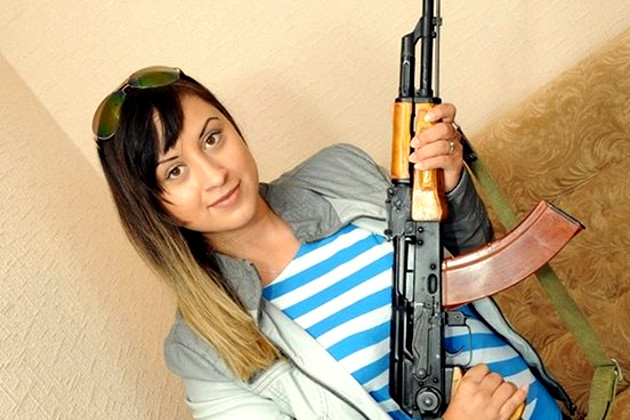There are two possibilities in Russia today: either Vladimir Putin is in control of events or he is their prisoner, trapped between war and revolution. As bad as the first would be, the way the world has gone to war in the past suggests the second may be even worse. Tragically, that is the situation Putin has put himself in now, Yevgeny Ikhlov says.

As history shows, the Moscow commentator says, “wars do not always begin with carefully prepared strikes.” They often happen because leaders have acted in ways that reduce their room for maneuver and leave them with no obvious or at least acceptable option but to go to war.
That is exactly where the German general staff in the run up to 1914; and it is exactly the same one Putin is in now, “irreversibly sliding toward war because [the Kremlin leader] has consistently blocked all possibilities” for changing course that do not appear to him to be a worse option for himself.
Putin’s first move toward a situation in which he would be confronted with a choice between war and revolution in fact occurred when he made war on the oligarchs and the bureaucracy and promoted “paternalistic” ideas about his rule which allowing “unprecedented growth of social stratification,” Ikhlov says.
“The gap between the social divide, the expropriation of independent business by the Putin ‘oprichniki
,’ the elimination of competitive politics on the one side and Bonapartist (in the spirit of Napoleon III, of course) and of demagogically constructed Putinism inevitably had to become the start of a major social-political split,” he continues.
This split was very much in evidence in the demonstrations of December 2011, demonstrations that made a war in Ukraine an attractive option. But that war had the effect of prompting the West to declare “a second Cold War,” something that began small but has expanded over time.
To descend the Donbas into chaos, Putin chose “crypto-intervention.” That and the shooting down of the Malaysian jetliner made everything worse, the Moscow commentator says, and the Second Cold War was unleashed in earnest. The collapse of oil prices and sanctions forced Putin to play on xenophobia.
But it also put in him a position where the only way he could get out of one war “was through another, the air blitzkrieg in Syria,” Ikhlov says. But the logic of that attack which involved Russia in a conflict without any “rational goals” led to confrontation with Türkiye. And that too has followed its own “unfolding logic.”
Putin can’t retreat in Syria without having his entire foreign policy called into question, something that could destroy his regime at home. If he could make domestic reforms, that might save him. “But when reforms replace foreign policy adventurism and then there follows collapse and defeat, it is difficult to imagine a better detonator for a revolution.”
The Kremlin leader could compensate for a retreat in Syria by an escalation on the Ukrainian front – scrapping Minsk 2
, recognizing the "DNR" and "LNR," and “openly introducing forces there, as was done in Georgia in 2008. But that would have real and dangerous consequences, Ikhlov says.
“It would convert Russia into “an outcast” and lead to “the appearance in Ukraine of American soldiers sent their by the next president of the US. And it is far from certain that such a foreign policy sharpening would prevent the growth of dissatisfaction within the country” because none of its domestic ills are being addressed.
What will Putin do in this situation? He has “never decided to shift finally to the model of a besieged fortress,” as some of his advisors want “because it would involve not only the purge of a ‘fifth’ and ‘sixth’ ‘column’ but also the nationalization of the oligarchy, a forced credit amnesty and other left of center measures.”
According to Ikhlov, “Putin will not decide on show purges of the ruling nomenklatura because he knows the lessons of history and above all that it is difficult to keep such anti-elite terror in bounds.” But that is only one of Putin’s dilemmas for which there is no obvious or at least acceptable answer.
For example, “Putin cannot rein in Kadyrov” first and foremost because “this would be a moral victory of the liberal opposition, the most consistent opponents of his regime.” And he dare not do so lest Kadyrov in the event show himself unwilling to follow orders to leave and use his own resources to fight for himself.
“The logic of the slide toward war is overwhelming” for Putin, Ikhlov says. Anything he would do at home to cover retreats abroad would put his regime at risk. “And so, only war remains,” not perhaps in Ukraine where “even a conventional one would be too much” as “the fate of Milosevic” shows.
Putin would like to keep things bubbling right “at the edge of war,” but Ikhlov suggests that he does not have the ability to control events that well. Instead, the commentator suggests, “Putin has created a situation in which in principle he cannot win.” Therefore he will seek a war elsewhere and at present that means Türkiye.
“In the best case, “this will be limited to military hysteria. In the worst,” to the use of Russian forces. But that will give Türkiye the possibility of appealing to NATO under Article 5
and also to close the straits [between the Mediterranean and Black seas - Ed.]. Thus, Putin will discover that “Russia will be able to fight with Türkiye only with nuclear weapons.”
Any threat of that will bring the UN Security Council into play, Ikhlov says; and Putin will stand finally between war and revolution. The Kremlin leader already “understands perfectly how he has run away from revolution to Crimea and the Donbas, and from the Donbas to Syria, and that he will be able to avoid a new protest upsurge only with a Turkish war.”
It wasn't what he planned; but it is the only way, Ikhlov says, that the Kremlin leader believes he can save himself – and that is his most important task.
Related:
- Putin, world's first nuclear terrorist, must be isolated internationally, Yakovenko says
- Litvinenko murder was 'act of nuclear terrorism,' his widow reminds the world
- Is Putin about to leave office? Inozemtsev doesn't think so
- Expert: Putin and Assad support Hezbollah terrorism
- Kremlin thinks West would not respond even to a small nuclear bomb attack, Kovalyov says





